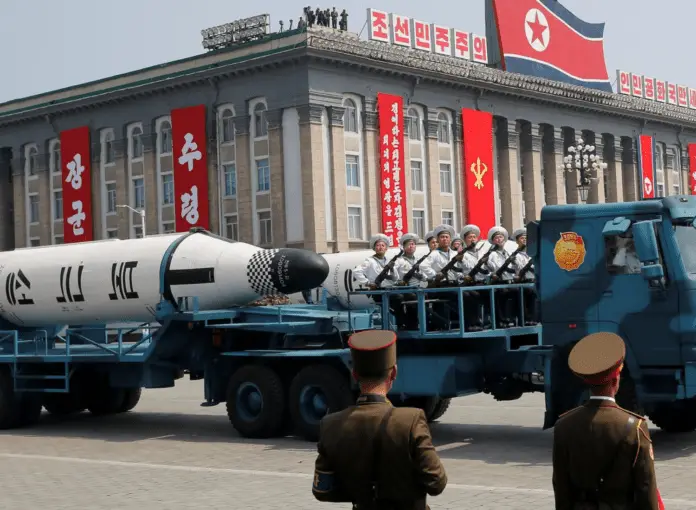North Korea has long been a source of concern for the international community, with its human rights abuses and nuclear program raising alarm bells. While some may dismiss these concerns as overblown, the reality is that North Korea poses a significant threat to global stability. In this blog post, we will examine this threat in detail and explore why stronger action is needed to address it.
Historical Context
To understand the threat posed by North Korea, it’s important to first examine the country’s history. The Korean War of the 1950s left the country divided into two, with the North under communist rule and the South under a democratic government. Since then, North Korea has become increasingly isolated from the rest of the world and has been ruled by the Kim family dynasty.
Human Rights Abuses
One of the most significant concerns about North Korea is the regime’s human rights abuses. Reports of torture, forced labor, and political oppression are common, and the country’s citizens have few freedoms. The UN has described the situation as a “systematic, widespread and gross human rights violations.”
Nuclear Program
North Korea’s nuclear program is another major concern. The country has conducted numerous nuclear tests and has been working to develop long-range missiles capable of delivering nuclear warheads. This has raised fears about the country’s ability to launch a nuclear attack on another country.
Threat to Regional Stability
North Korea’s actions also pose a threat to regional stability. The country has a history of aggressive behavior towards its neighbors, including South Korea and Japan. In 2017, tensions between North Korea and the US escalated to a point where there were concerns about the possibility of a nuclear war breaking out.
Impact on Global Economy
The instability caused by North Korea’s actions can also have an impact on the global economy. For example, the country’s nuclear tests have led to sanctions being imposed, which can disrupt trade and affect businesses around the world.
Cyber Attacks
North Korea has also been accused of carrying out cyber attacks on other countries. In 2014, the country was linked to an attack on Sony Pictures, which was seen as retaliation for the release of a movie that mocked the North Korean regime.
State Sponsor of Terrorism
North Korea has been designated a state sponsor of terrorism by the US government due to its support of groups such as Hezbollah and Hamas. This support includes the provision of weapons and training.
The Role of China
China has historically been an ally of North Korea and has provided the country with economic and political support. However, in recent years, China has also become increasingly concerned about North Korea’s actions and has supported sanctions against the country.
International Response
The international community has taken various steps to address the threat posed by North Korea. These include sanctions, diplomatic efforts, and military exercises. However, there is debate about whether these measures are sufficient to address the threat.
Potential Solutions
There are several potential solutions to the North Korea problem. These include increased diplomatic efforts, stronger sanctions, and military action. However, each of these options comes with its own set of risks and drawbacks.
The Role of the United States
The US has historically been a key player in efforts to address the North Korea threat. However, the Trump administration’s approach, which included a focus on “maximum pressure” through sanctions and threats of military action, was controversial and ultimately unsuccessful.
The Humanitarian Crisis
The North Korean regime’s actions have also led to a humanitarian crisis within the country. Many North Koreans suffer from malnutrition and lack access to basic necessities such as healthcare and education.
The Role of NGOs
NGOs play an important role in addressing the humanitarian crisis in North Korea. Organizations such as the Red Cross and Doctors Without Borders provide aid and support to North Koreans in need.
The Importance of International Cooperation
Addressing the threat posed by North Korea requires international cooperation. The UN, as well as individual countries such as the US, China, and South Korea, must work together to find a solution to the problem.
Conclusion:
In conclusion, North Korea poses a significant threat to global stability due to its human rights abuses, nuclear program, aggressive behavior towards its neighbors, and support for terrorist groups. While various efforts have been made to address the threat, stronger action is needed. International cooperation and increased diplomatic efforts may be key to finding a solution to this complex problem. In the meantime, the humanitarian crisis in North Korea must also be addressed.
